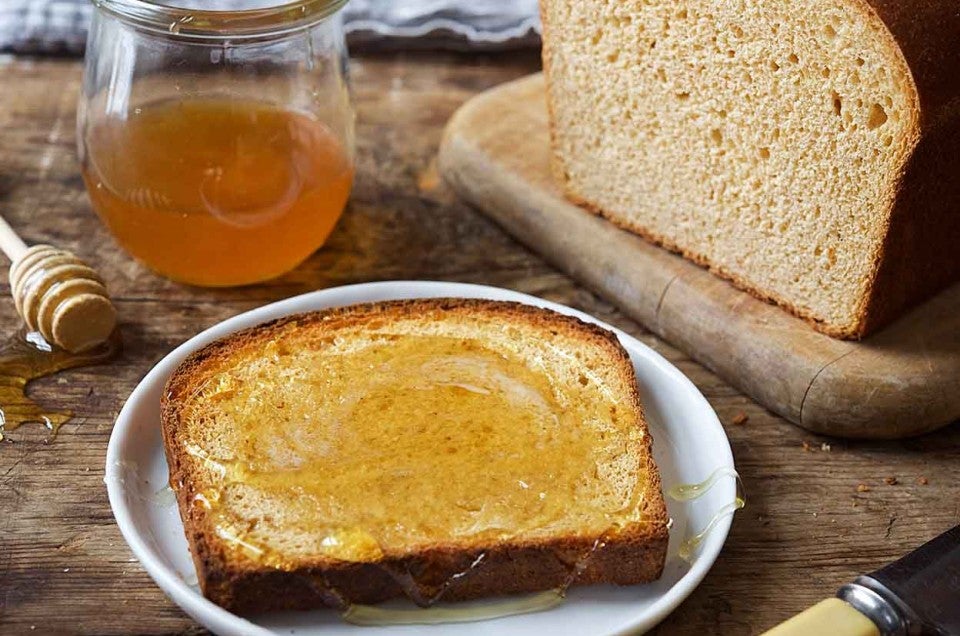Classic 100% Whole Wheat Bread
Who says whole wheat bread has to be dense, dry, and tasteless? This 100% whole wheat recipe features the delightfully nutty taste of wheat in a fine-grained, moist, faintly sweet loaf.

Who says whole wheat bread has to be dense, dry, and tasteless? This 100% whole wheat recipe features the delightfully nutty taste of wheat in a fine-grained, moist, faintly sweet loaf.

Weigh your flour; or measure it by gently spooning it into a cup, then sweeping off any excess.
In a large bowl or the bowl of your stand mixer, combine all of the ingredients and stir just until the dough starts to leave the sides of the bowl. Let it rest for 20 to 30 minutes; this gives the flour a chance to absorb some of the liquid and the bran to soften, making the dough easier to knead.
If kneading by hand, transfer the dough to a lightly greased surface, oil your hands, and knead it for 6 to 8 minutes, or until it's smooth and supple. If kneading in a stand mixer, attach the dough hook and knead for 5 to 7 minutes at low speed, until the dough is soft and smooth. Adjust its consistency with additional flour or water, if necessary.
Transfer the dough to a lightly greased bowl, cover it, and let it rise until puffy though not necessarily doubled in bulk, 1 to 2 hours.
Gently deflate the dough, transfer it to a lightly oiled work surface, and shape it into an 8" log. Place the log in a lightly greased 8 1/2" x 4 1/2" loaf pan and cover the pan loosely with lightly greased plastic wrap or a reusable cover.
Let the bread rise for 1 to 2 hours, or until the center has crowned about 1" above the rim of the pan. Towards the end of the rising time, preheat the oven to 350°F.
Uncover the bread, place it in the oven, and bake for 35 to 40 minutes, tenting it lightly with aluminum foil after 20 minutes to prevent over-browning. A digital thermometer inserted into the loaf's center should register at least 190°F.
Remove the bread from the oven and turn it out of the pan onto a rack to cool. For a soft, flavorful crust, rub the top of the warm bread with a stick of butter. Cool completely before slicing.
Store the bread, well wrapped, at room temperature for several days; freeze for longer storage.
Want to make this bread with the help of your bread machine? Place the dough ingredients into your machine in the order listed and choose the dough or manual cycle. When the cycle is done, remove the risen dough and shape and bake as directed in the recipe above. Note: Due to the many brands of bread machine on the market and their different features, we can’t guarantee you can bake this bread start to finish in your own machine; please use the dough or manual cycle instead.

Popular in recipes
Popular in products

